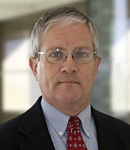|
 |
|
| USC:Screening Of Assignment:China (12/1, 12/3, 12/10)) |
|
| 2015/11/19 7:51:10 | 浏览:2996 | 评论:1 |
|
|
|
|
|
|

|
|
|
|
Please join the USC U.S.-China Institute for three exciting upcoming events - the premiere public screening of the latest episode in our Assignment:China series, "Follow the Money," a book talk by award-winning journalist Louisa Lim on The People's Republic of Amnesia, and a discussion to look at how China's national security policy is shaped under Xi Jinping.
What:Screening Of Assignment:China - Follow The Money
When:December 1, 2015, 4-6pm
Where:ANN 105a, USC Campus *please note that the screening is at the Wallis Annenberg Hall(ANN), and not at the Annenberg School for Communication and Journalism(ASC).
Cost:Free, please register here. |
|
In many decades of western news coverage of China, 2012 was a watershed moment. In the space of just a few months, a Bloomberg News team headed by correspondent Michael Forsythe publishing a sweeping expose of how relatives of China's new leader, Xi Jinping, has earned vast fortunes in a variety of often disguised business deals. Soon after, David Barboza of the New York Times published his own revelations of the wealth accumulated by the relatives of Chinese premier Wen Jiabao.
Both stories broke new ground, not only in terms of what they revealed about China's new rich- but also as examples of a new kind of investigative journalism that has become increasingly important for covering a rapidly changing China. The correspondents took advantage of China's evolution towards a more open, internationally engaged, market-style economy to unravel a series of complex, opaque, often hidden set of business dealings reaching to the highest levels in the People's Republic.
The behind-the-scenes story of the journalists who conducted the investigations- and faced the dramatic, controversial, and often frightening consequences- is the subject of "Follow the Money." Based on extensive interviews with most of the leading figures involved, the film chronicles the emergence of a new kind of journalism that will become increasingly crucial as reporters- and the public at large- seek to understand the dynamics of a new, wealthy, and increasingly powerful China.
"Follow the Money" is the final episode of Assignment:China, a 12-part series chronicling the history of American correspondents in China from the 1940s to the present day produced by the U.S.-China Institute at the University of Southern California. The lead reporter is Mike Chinoy, a Senior Fellow at the Institute and former CNN Beijing bureau chief and Senior Asia Correspondent. |
|
On June 4, 1989, Peoples Liberation Army soldiers opened fire on unarmed civilians in Beijing, killing untold hundreds of people. A quarter-century later, this defining event remains buried in Chinas modern history, successfully expunged from collective memory. In The Peoples Republic of Amnesia, Louisa Lim charts how the events of June 4th changed China, and how China changed the events of June 4th by rewriting its own history. Lim reveals new details about those fateful days, including how one of the countrys most senior politicians lost a family member to an army bullet, as well as the inside story of the young soldiers sent to clear Tiananmen Square. She also introduces us to individuals whose lives were transformed by the events of Tiananmen Square, such as a founder of the Tiananmen Mothers, whose son was shot by martial law troops; and one of the most important government officials in the country, who post-Tiananmen became one of its most prominent dissidents. And she examines how June 4th shaped Chinas national identity, fostering a generation of young nationalists, who know little and care less about 1989. For the first time, Lim uncovers the details of a brutal crackdown in a second Chinese city that until now has been a near-perfect case study in the states ability to rewrite history, excising the most painful episodes. By tracking down eyewitnesses, discovering US diplomatic cables, and combing through official Chinese records, Lim offers the first account of a story that has remained untold for a quarter of a century.
The book will be available for purchase and signing at the event.
About the author:
Louisa Lim is an award-winning journalist who spent a decade reporting from China for BBC and NPR. Her book The People's Republic of Amnesia was named an Economist best book of the year, and shortlisted for the Orwell Prize for political writing and the Helen Bernstein Book Award for Excellence in Journalism. It was described as "stunning and important" by the Los Angeles Review of Books, and as "one of the best analyses of the impact of Tiananmen throughout China in the years since 1989" by the New York Times. She is currently the Howard V.Marsh Visiting Professor of Journalism at the University of Michigan.
|
|
One of the most significant changes initiated by Xi Jinping since assuming power in 2012 has been the creation of a National Security Commission. Our speakers are veteran observers of the People's Liberation Army and the Army's influence beyond military affairs. Their presentations will highlight the changes initiated under Xi Jinping, the Communist Party's control of the military, and the army's role in making China's security and foreign policy. Today's PLA does appear to have more influence on purely military issues than in the past-but much less influence on political issues-and to be more actively engaged in policy debates on mixed civil-military issues where military equities are at stake.
Speakers
|

|
Andrew Scobell is a senior political scientist at the RAND Corporation. Prior to this he was an associate professor of international affairs at the George H. W. Bush School of Government and Public Service(with tenure)and director of the China certificate program at Texas A&M University in College Station, Texas. From 1999 until 2007, he was associate research professor in the Strategic Studies Institute at the U.S. Army War College and adjunct professor of political science at Dickinson College, both located in Carlisle, Pennsylvania. Scobell is author of China's Use of Military Force:Beyond the Great Wall and the Long March (Cambridge University Press, 2003), China's Search for Security (Columbia University Press, 2012)with Andrew J. Nathan. His latest edited volume is PLA Influence on China's National Security Policymaking(Stanford University Press, 2015)with Phillip C. Saunders. Scobell was born and raised in Hong Kong and regularly makes research trips to the region. He earned a doctorate in political science from Columbia University.
|

|
Tai Ming Cheung is the director of IGCC and the leader of IGCC's Minerva project "The Evolving Relationship Between Technology and National Security in China:Innovation, Defense Transformation, and China's Place in the Global Technology Order." He is a long-time analyst of Chinese and East Asian defense and national security affairs. Cheung was based in Asia from the mid-1980s to 2002 covering political, economic, and strategic developments in greater China. He was also a journalist and political and business risk consultant in northeast Asia.
Cheung received his PhD from the War Studies Department at King's College, London University, in 2006. His latest book, Fortifying China:The Struggle to Build a Modern Defense Economy, was published by Cornell University Press in 2009. He is an associate professor at the School of Global Policy and Strategy at UC San Diego, where he teaches courses on Asian security and Chinese security and technology. |
|
|
| | |
|
|
|

















